In this article
If your female cat is expecting a litter of sweet kittens, you might be horrified to find out that mother cats sometimes eat their kittens. We know it can be distressing to think about, but it is a rare event and not something that most pet parents will ever have to worry about.
The good news is that if you notice some of the warning signs, you can safely remove a kitten from the litter and speak to your veterinarian for advice on what to do next. The scientific term for an animal eating their own young is “infanticide,” and it’s been well documented as part of the natural cycle of life for many animals.
In this article, we’ll look at the reasons why this might occur and what you can do about each circumstance.

The 5 Reasons Why Mother Cats Might Eat Their Kittens
1. Genetic Predisposition
It is believed that there might be a genetic predisposition to some queens (female cats) opting to eat their kittens 1. If this is the case, breeders often advise against using the queen for future breeding purposes. Anecdotally, some people claim that mating the queen with a different tom (male cat) may curb this behavior, however, this hasn’t been proven in studies. Therefore, if this is a repeated occurrence with your queen, the best option is to not have her re-bred and instead have her spayed. Such queens often make great pets, and their tendency to eat their offspring is not an indication of their viability as a friendly house pet.
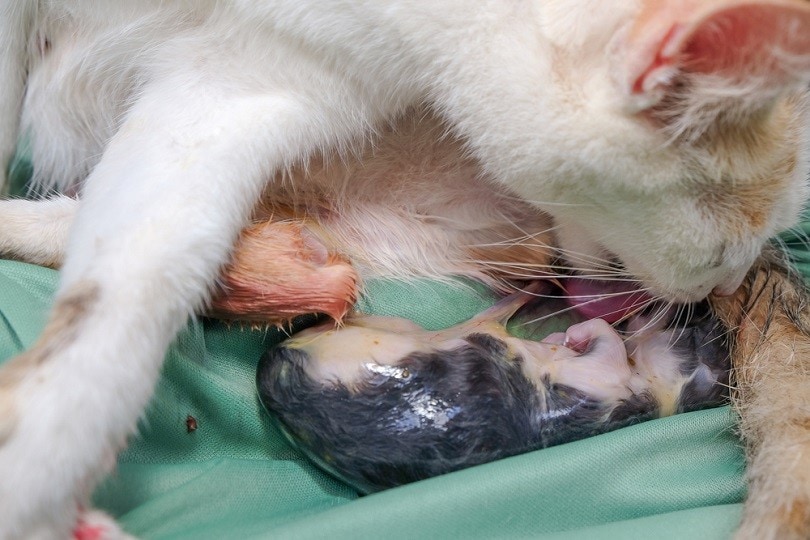
2. The Queen’s Age
Another factor that can lead to infanticide from queens is her age 2. Research postulates that queens that are very young or very old are at a higher risk of eating their young. Anecdotally, it is thought that the best age to breed a queen is between the ages of 2–8 years (2 years is the guideline for larger breeds, such as the Maine Coon). Queens younger and older than this age range can definitely breed, however, they are thought to be more likely to display unwanted behaviors, including eating their young.
3. Kitten Has Birth Defects
While a kitten may look normal, a mother cat can sense if a kitten has birth defects or isn’t thriving. She may realize that the kitten won’t survive long, and she will eat the kitten to prevent the problem of having a dead kitten attract predators.
More normal behavior in the case of a kitten with an illness or birth defect is that your cat may remove the kitten from the litter and concentrate on taking care of the rest of her babies. While this may seem cruel, it’s an evolutionary behavior to ensure the survival of the rest of the litter.
If you see your cat removing one kitten repeatedly or ignoring one individual kitten’s attempts to feed, it’s best to gently remove the kitten yourself and speak to a vet about hand-rearing the kitten instead.
If you need to speak with a vet but can't get to one, head over to PangoVet. It's an online service where you can talk to a vet online and get the advice you need for your pet — all at an affordable price!
If the mother cat has rejected the kitten, persuading her to accept the kitten back into the litter can be difficult. A queen may also eat one of the kittens that is born normal but perishes later on, for the same reasons she may eat a stillborn (born dead) kitten. We’ll discuss that shortly.
4. The Queen Feels Threatened or Stressed
A queen that feels threatened or stressed, either from other cats or unwanted intervention from other pets (or even humans in some cases) may sometimes resort to eating her kittens as a stress response. This is an instinctive response that some queens exhibit, as they feel like their nest just isn’t safe, and they would rather recoup their “investment” (their young) rather than risk being exposed to stressors on a constant basis.
This behavior is much more common for first time mothers. Queens that are accustomed to multiple litters and the interactions associated with their nest are often not prone to eating their kittens for this reason.
To prevent this, it’s important to give your queen a safe, secure nesting spot that’s free from disturbances from your other pets. If you have children in your house, it’s best to ask them to not disturb the queen and her kittens. Ensure that your cat has access to fresh clean drinking water at all times (remember that a nursing queen requires a high amount of water to produce milk). Whenever she emerges from the nest, offer her a serving of high quality kitten food. It’s best to discuss your cat’s nutritional requirements with your veterinarians, as the amount of food she needs on a daily basis will largely depend on the number of kittens she has.
5. The Mother Cat is Severely Malnourished
A cat who doesn’t have enough body fat or isn’t eating enough nutrients to support her kittens may decide to eat them, especially if she doesn’t have a large litter. She will instinctively know that she can’t support them or produce enough milk to prevent them from dying.
A female cat in this position may choose to eat one or two kittens to provide nutrients for herself and ensure the survival of her remaining kittens. To prevent this scenario, ensure your female cat has plenty of nutritionally balanced food before and after giving birth.
Your vet can advise you on the best type and amount of food. If your female cat seems to get thin as she’s nursing her kittens, ask your vet about a phone consultation or home visit rather than subject her to the stress of a trip to the veterinary clinic. You may need to increase her rations or bottle-feed some kittens to supplement their nutrition.
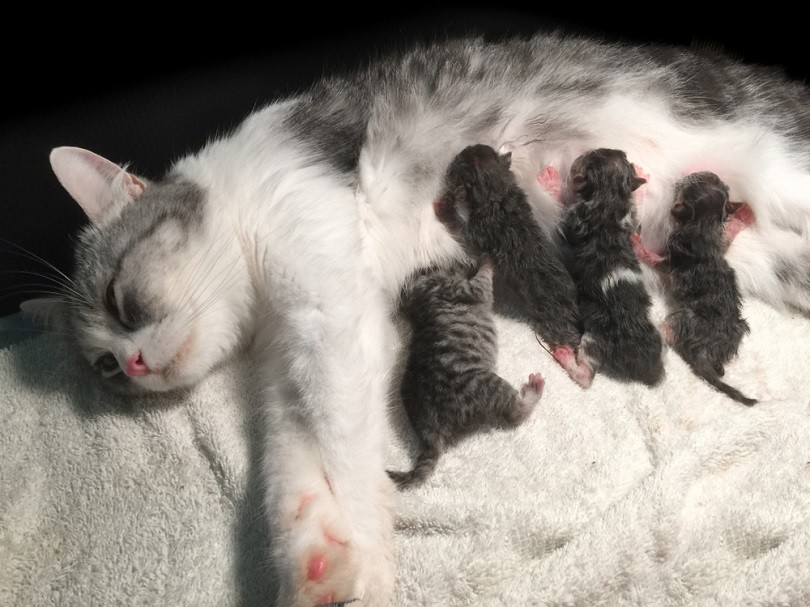
5. The Kitten Was Stillborn
A stillborn kitten is a kitten that’s born deceased and was never alive. At times, mother cats will consume stillborn kittens. There are several reasons for stillborn kittens.
- The queen was ill during her pregnancy
- The queen suffered direct trauma to her abdomen (specifically her uterus) during the pregnancy
- The queen was overly stressed during her pregnancy
- The queen ingested a toxin during her pregnancy
- The queen was given medication that is contraindicated (not advised) for cats that are pregnant

What to Do if Your Female Cat Eats Her Kittens?
Whatever you do, don’t punish her. She’s just following an evolutionary instinct to ensure her survival and that of her other kittens. It doesn’t make her a bad mother, and she’s only doing what she thinks best. It’s very important to pay close attention to her during the first 48 hours after her labor, to ensure that the kittens are all normal, nursing, and that the queen is paying close attention to them. A queen that’s caring for her kittens properly will display the following signs.
- She allows her young to nurse
- She constantly stays near her kittens as she feeds and grooms them
- She pays close attention to each kitten
- She only leaves them for a short period of time (if at all) for the first 24-48 hours after her labor
- She is not pacing, yowling, or hissing at the kittens
If you suspect that your cat ate one of her kittens, speak to your vet immediately, and they can help you figure out why she may have done it and how you can protect her remaining kittens. In addition, if one of the kittens seems to be struggling or doesn’t appear normal, it’s also recommended to separate the kitten and have your veterinarian look at the kitten. Ensure you provide everything your cat needs to feel safe, secure, and strong enough to care for her kittens.

Conclusion
It is unfortunate that at times, mother cats, also known as queens, do eat their kittens. In this article, we’ve covered the reasons as to why she may choose to do so, and offered tips to hopefully ensure that your cat doesn’t choose to do so.
As always, if you think that your cat is struggling with raising her kittens, or if you suspect that the kittens have defects or deformities, it’s best to consult your veterinarian for more advice.
Featured Image Credit: Karen Hogan, Shutterstock
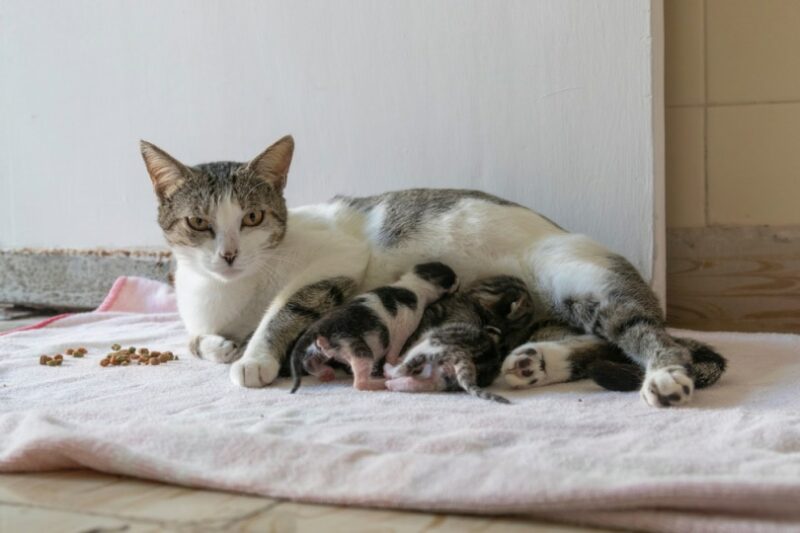

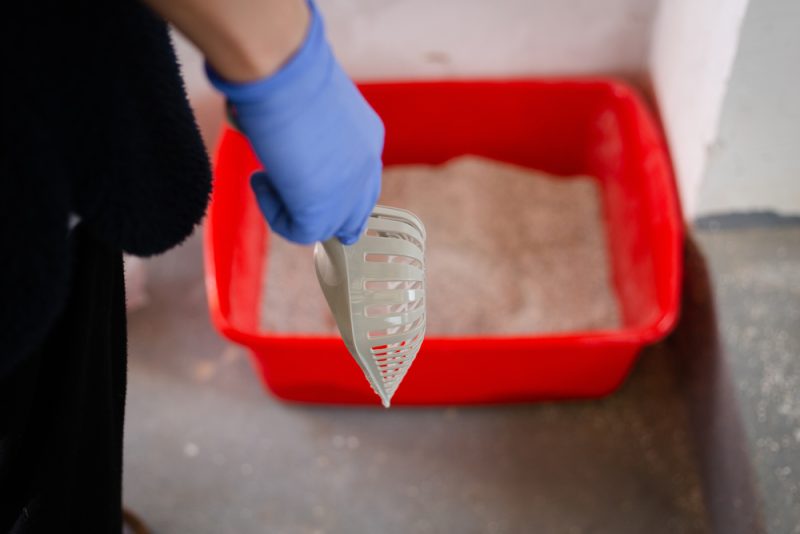
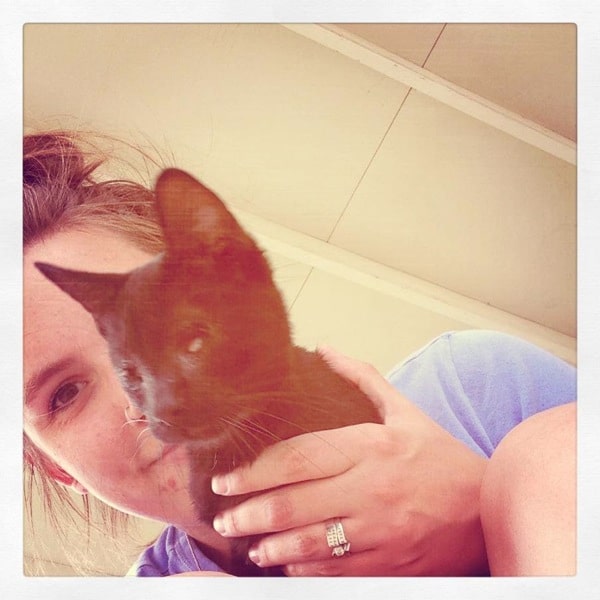
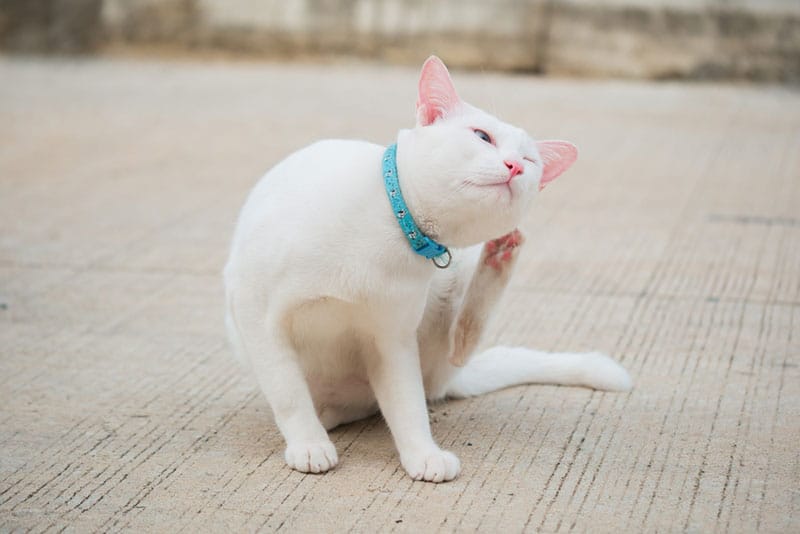

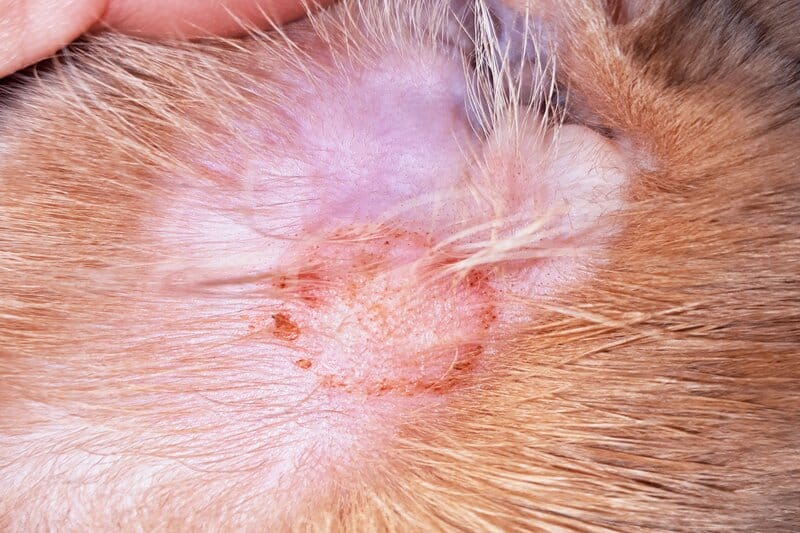
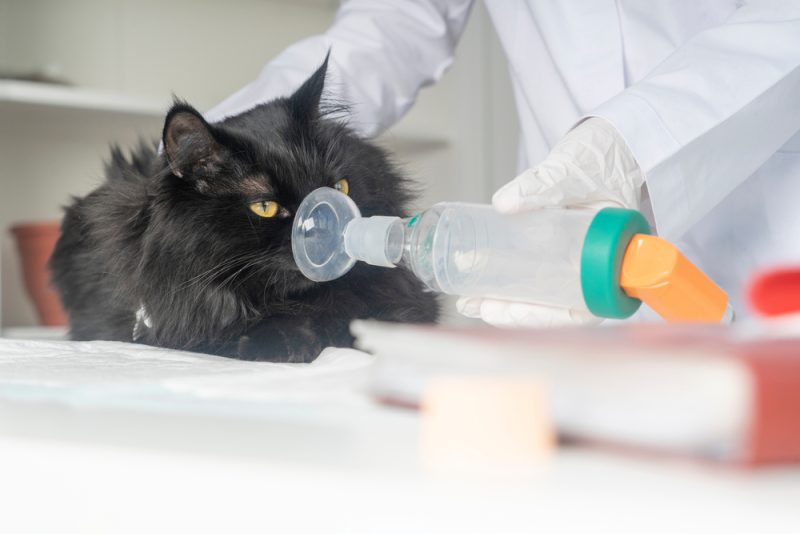
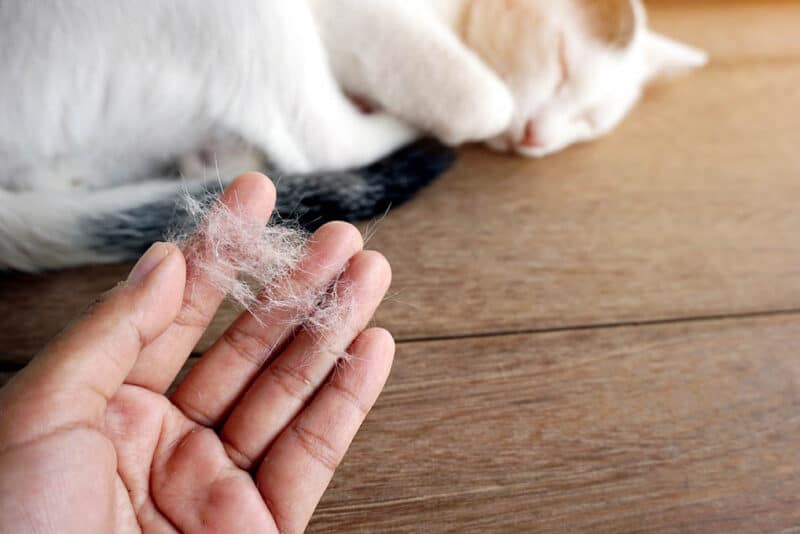
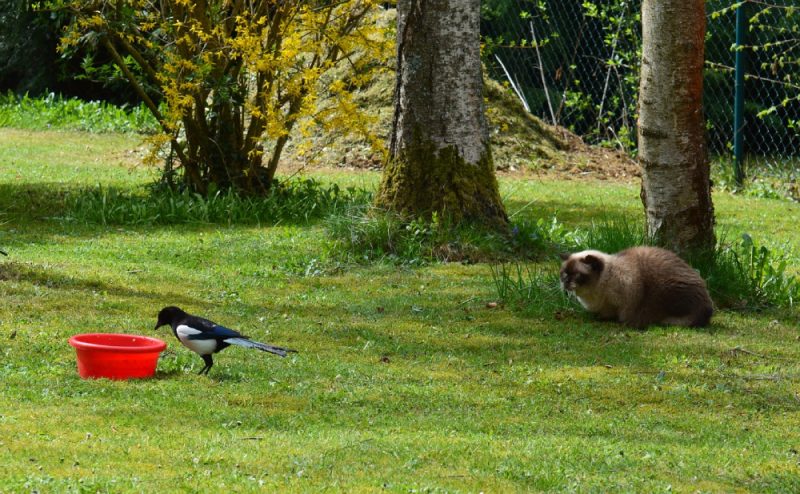
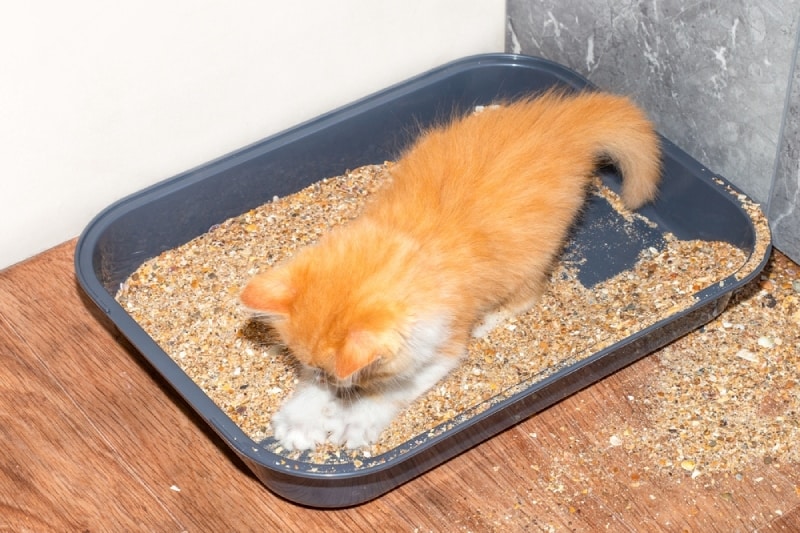
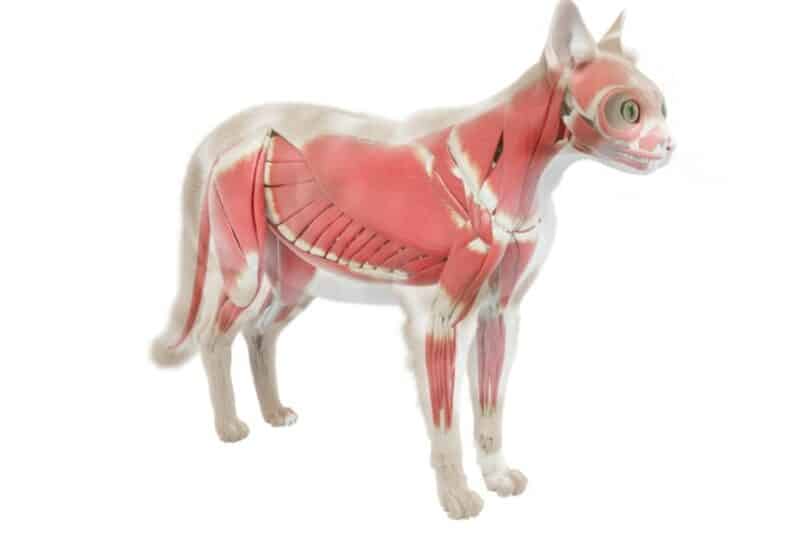
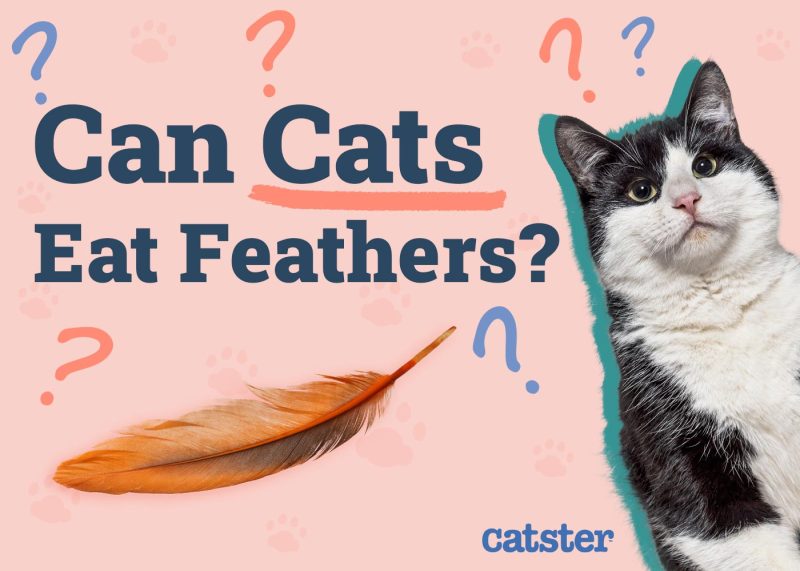
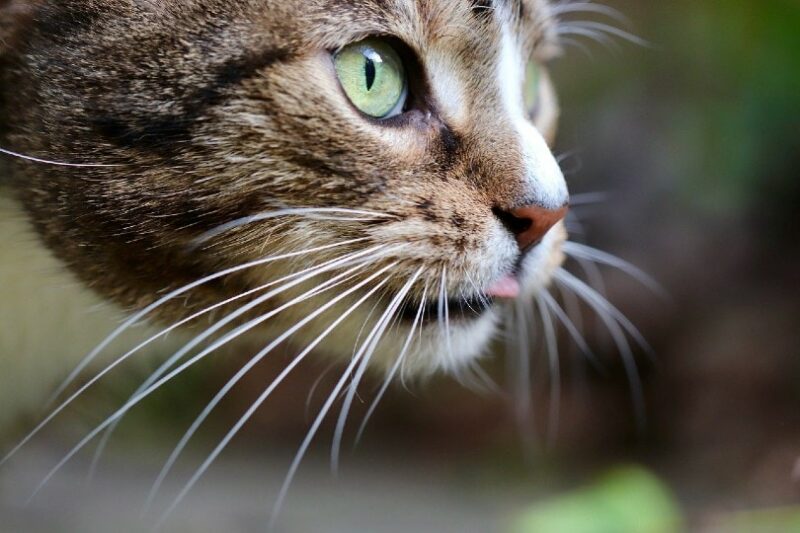
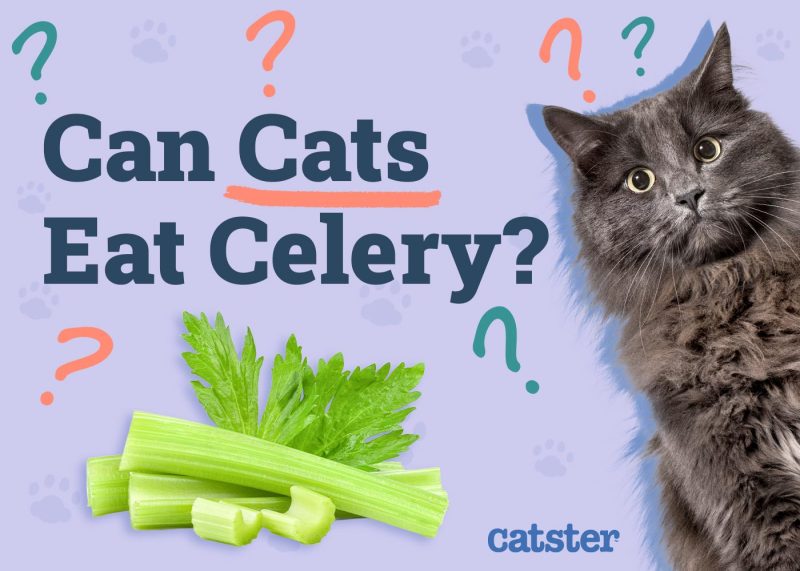
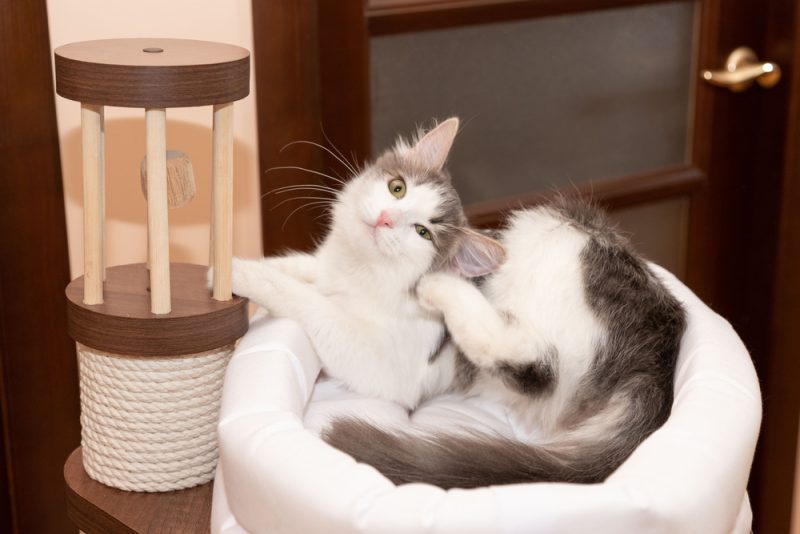
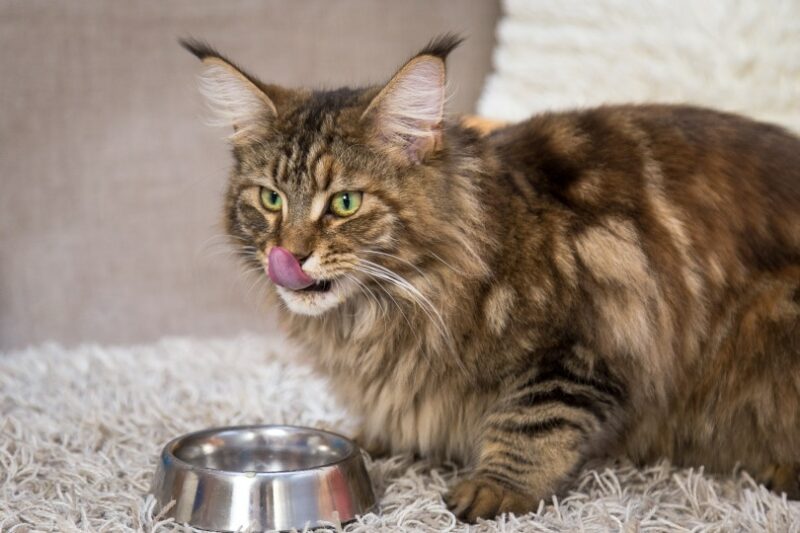
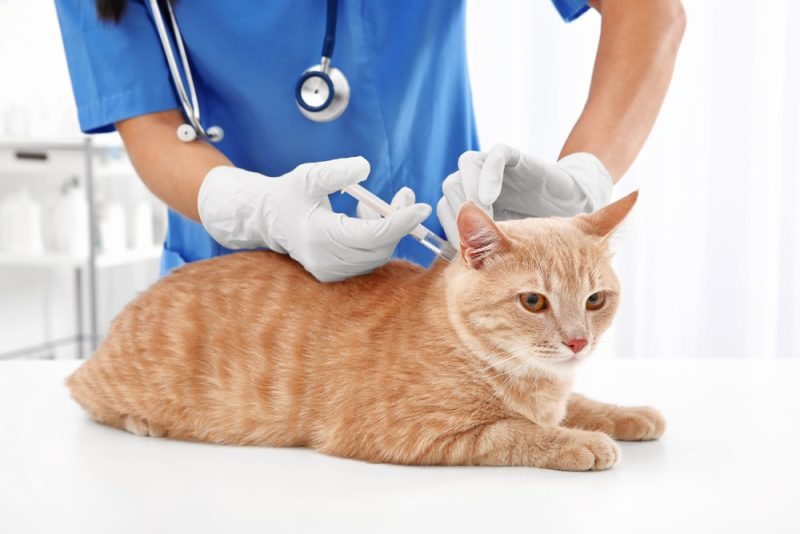



One Response
i have read thi